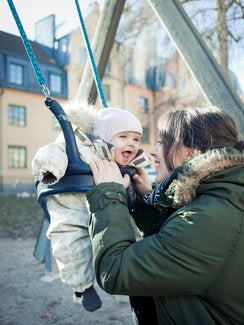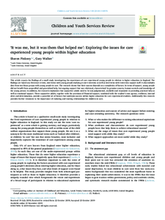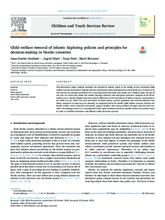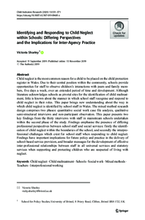

Displaying 621 - 630 of 1585
This article reports the findings of a small study investigating the experiences of care experienced young people in relation to higher education in England.
The article is based on interviews with 22 children’s spokespersons in the Norwegian arrangement for indirect participation in care proceedings, and presents analyses of the spokespersons’ experiences of contradictions and dilemmas in their practices.
This descriptive policy analysis examines the position of infants’ rights in the family service orientated child welfare systems of Denmark, Finland, Norway and Sweden when being placed in out-of-home care.
A European network of fostering organisations, APFEL (Acting for the Promotion of Fostering at European Level) is holding its eighth European conference entitled Foster Care Transforming Lives in Edinburgh on 20 November, in partnership with The Fostering Network.
The aim of this study is to utilise nationwide social services data from two countries (Northern Ireland (NI) and Finland), with similar populations but different intervention policies, linked to a range of demographic and health datasets to examine the mental health outcomes of young adults in the years following leaving care.
In this opinion piece for the Guardian, Harriet Ward - Emeritus professor of child and family research of Loughborough University - argues that UK policy since the passage of the Children Act of 1989 has moved away from promoting children’s satisfactory development and welfare.
This paper brings new understanding about the way in which child neglect is identified by school staff in Wales.
In this piece for the Guardian, Lauren Parker, a finalist in Coram Voice’s creative writing competition for young people in care, writes about her experience of becoming a parent while in foster care.
The thesis consists of four interrelated empirical studies that address different aspects of poor educational outcomes among children with out-of-home care (OHC) experience by means of analyses of longitudinal survey and register data, and evaluations of two interventions aimed at improving their basic academic skills.
The purpose of this study was to assess the possible impact of parents’ migration on emotional and behavioral problems of their left-behind children.



